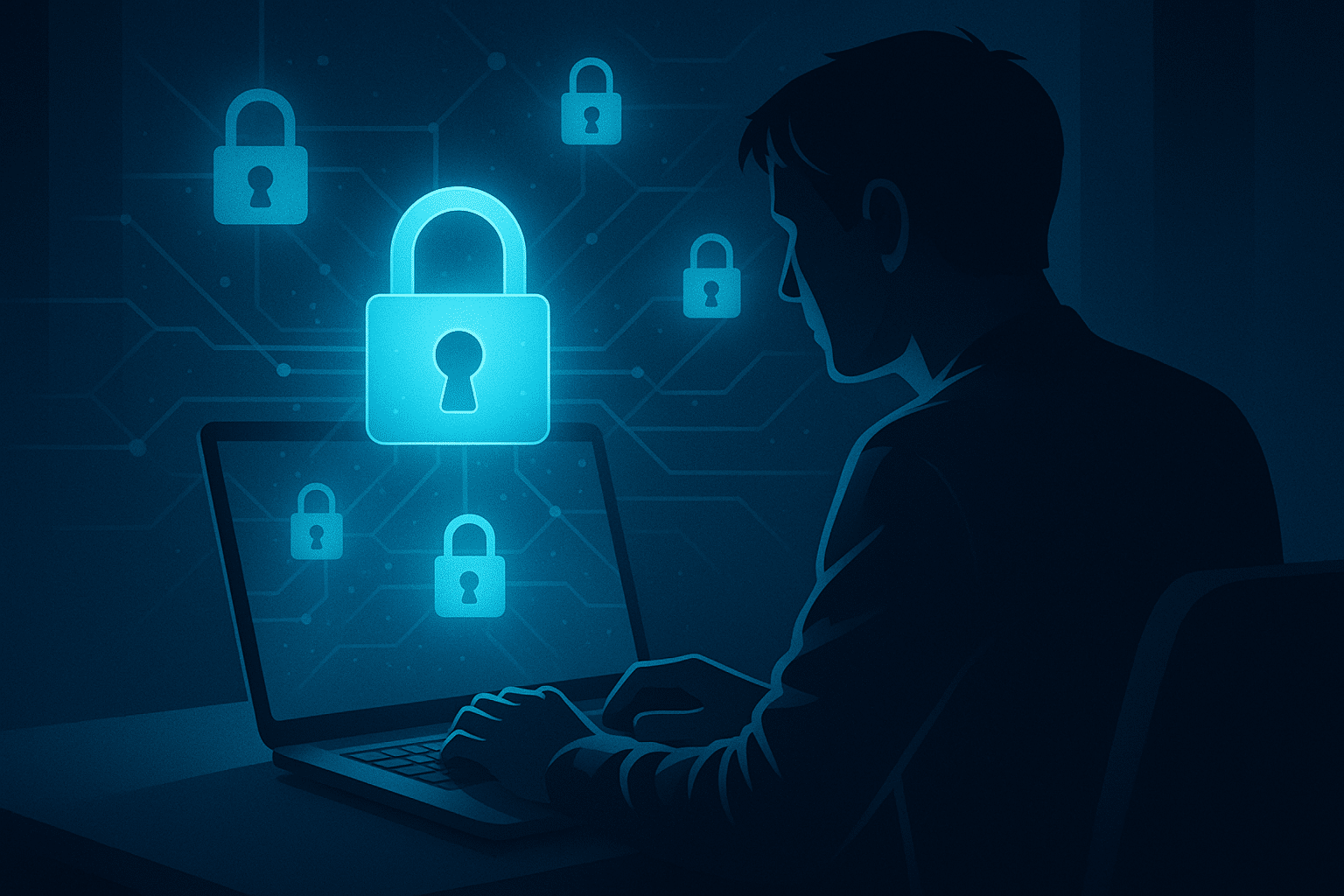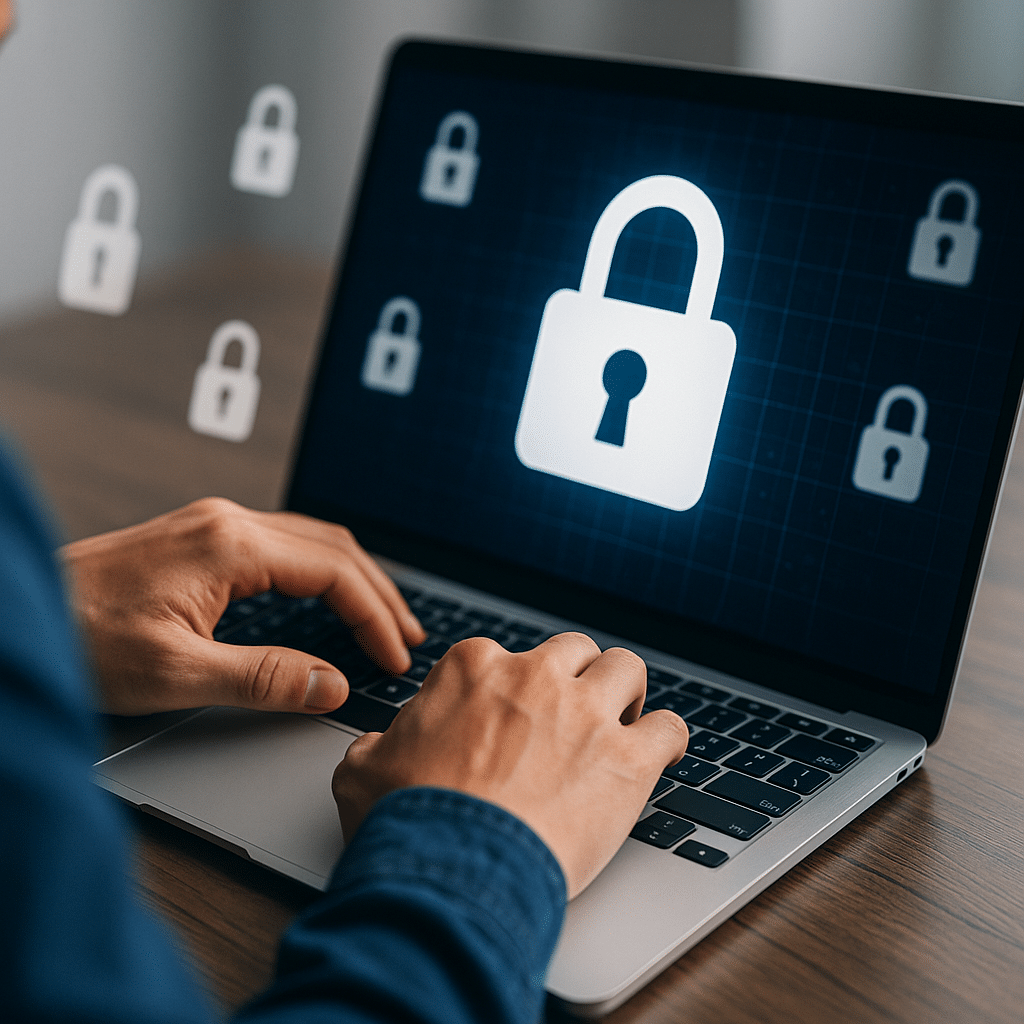How to Protect Your Online Privacy in the Age of AI Surveillance
As AI surveillance grows, protecting personal data is more important than ever. This guide provides online privacy tips to secure your information in 2025. We cover practical steps: strong passwords, encryption, and mindful data practices. You’ll also learn about using privacy tools like VPNs and private messaging apps. With data breaches and tracking algorithms advancing, these tips will help you maintain privacy and digital safety in today’s connected world.
Understand AI Surveillance
First, be aware that AI surveillance involves collection of personal data by devices and online services. Cameras, smart assistants, and even websites may use AI to analyze your behavior. The key issue is that more data (photos, location, browsing) is collected than ever. Companies use this data for targeted ads or improving AI models. Governments may also deploy AI for security. Knowing this, our goal is to minimize unnecessary data collection and use technology to our advantage for privacy.
Use Strong Passwords and MFA
A basic step is strong authentication. Use unique, complex passwords for each account. Password managers can generate and store these securely. Enable two-factor authentication (MFA) wherever possible. MFA adds a layer (like a code or biometric) so even if a password is stolen, your account remains safe. As experts recommend, “strong and unique passwords with two-factor authentication” is crucial for protecting your devices. This simple step greatly reduces risk from hacks or AI-driven credential theft.
Secure Your Connection (VPNs & HTTPS)
Use a Virtual Private Network (VPN) on untrusted networks. A VPN encrypts your internet traffic, preventing surveillance of your activity. It also hides your IP address, making tracking harder. Always check for HTTPS (the padlock icon) on websites, which means your connection to the site is encrypted. Avoid logging into sensitive accounts (like bank or email) on public Wi-Fi without a VPN, as this data could be intercepted. These tools help maintain digital safety by reducing easy data snooping.
Encrypt Communications and Data
Messaging and email should be end-to-end encrypted. Switch from default apps (like Gmail or WhatsApp) to privacy-focused services. For example, encrypted email providers (ProtonMail, TutaMail) ensure only you and recipient can read the content. Similarly, use encrypted messaging apps such as Signal or Threema instead of less-secure options. On your devices, encrypt your hard drive so that if stolen, data remains unreadable. Encrypted cloud backups are also recommended. In short, encryption turns your data into gibberish without your key, thwarting AI or hackers trying to read it.
Limit Data Sharing (Privacy Settings)
Review privacy settings on social media and apps. Turn off permissions that aren’t needed (like location or microphone access). For search, consider using private search engines (DuckDuckGo, Startpage) instead of Google; they don’t track your queries. Also, clear cookies or use tracking-blockers (extensions like uBlock or Privacy Badger) to stop sites from monitoring you. Less data shared means AI surveillance has less to analyze. Think before posting personal info online: treat it as if it will be public.
Beware of Phishing and Malware
Be vigilant against phishing emails or links, which try to trick you into giving up data. AI tools make phishing more convincing. Always verify senders and hover over links before clicking. Keep your software and antivirus updated to defend against malware that could spy on you. Remember the IBM report: sophisticated attacks (like prompt injection) can target AI systems. Similarly, attackers can use malicious AI to craft phishing. Staying informed about common scams is a key privacy defense.

Privacy Tools and Browsing Safely
Use reputable security tools: password managers, antivirus, and privacy browsers (like Brave or Firefox with privacy add-ons). Browser extensions like HTTPS Everywhere enforce secure connections. Disable AI assistants (like Siri or Alexa) when not needed, as they always listen. When possible, use a privacy-focused operating system or device. For instance, some phones let you disable tracking (limit ad tracking in settings). Always lock your devices with passcodes or biometrics to protect data if lost. These measures together create a safer digital environment.
Mini-FAQ
- Q: How can I protect my data from AI analysis?
A: Limit data sharing and use encryption. For example, private search engines (DuckDuckGo) keep searches anonymous, and encrypted messaging apps (Signal) keep your chats private. - Q: Are VPNs necessary for everyday use?
A: VPNs are crucial on public networks to hide your activity from ISPs or malicious actors. At home, they can still provide extra privacy by masking your IP from websites. - Q: What should I do about smart home devices (cameras/mics)?
A: Turn off or mute always-on voice assistants unless needed. Place webcams/phones face-down when not in use. Check if the device allows disabling data collection features. - Q: Do social media apps track me even when off?
A: Yes, many apps run in background collecting data. Go to your phone settings to revoke permissions (location, camera, microphone) for apps you don’t trust or seldom use. - Q: How often should I update my passwords?
A: It’s good to change important passwords every few months. Use a password manager to generate strong passwords and update them easily. - Q: Are public Wi-Fi safe to use?
A: Public Wi-Fi is inherently risky. Always use a VPN on public networks. If no VPN is available, avoid entering sensitive information (bank login, personal data).
Conclusion
In the age of AI surveillance, proactive measures are essential for digital safety. Online privacy tips like using strong passwords with two-factor authentication, encrypting communications, and limiting data sharing will help safeguard your information. Regularly update your security settings and use privacy tools (VPNs, encrypted apps) to stay a step ahead of trackers and hackers. By adopting these practices, you can enjoy digital life while keeping your personal data protected from unwanted AI or cyber monitoring. Remember: protecting privacy is an ongoing process, but these steps will greatly improve your defenses in 2025 and beyond.
Further Reading
- Electronic Frontier Foundation (EFF) – Surveillance Self-Defense
Practical guides and tools for protecting your privacy from digital tracking.
👉 ssd.eff.org - Proton – Online Privacy Guide
Comprehensive tips on encryption, VPNs, secure messaging, and protecting personal data.
👉 proton.me/learn/online-privacy-guide - Mozilla Foundation – Data Privacy Resources
Advice on online privacy, safer browsing, and digital rights.
👉 foundation.mozilla.org/en/privacynotincluded - Bitwarden – Password Security & Online Privacy
Expert insights into password management, MFA, and encryption for data protection.
👉 bitwarden.com/blog - IBM – AI and Cybersecurity Reports
Research on how AI is used in surveillance and security, with recommendations for resilience.
👉 ibm.com/security
